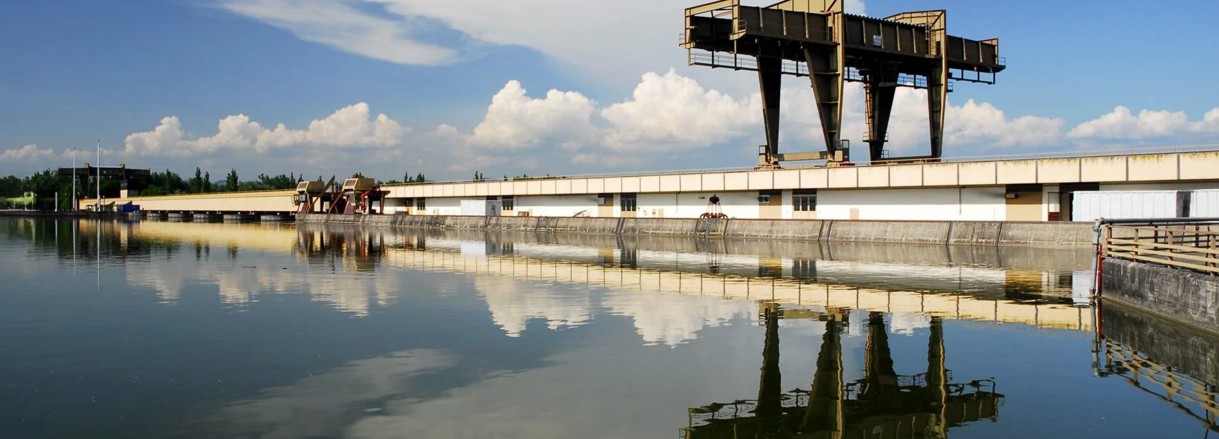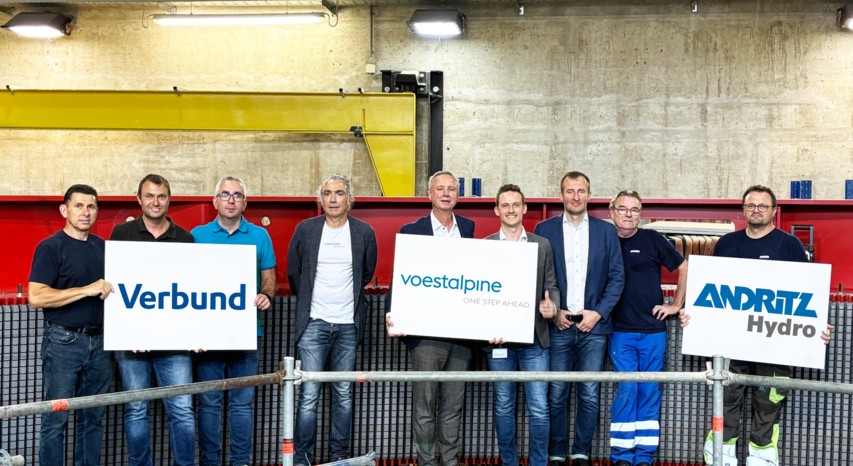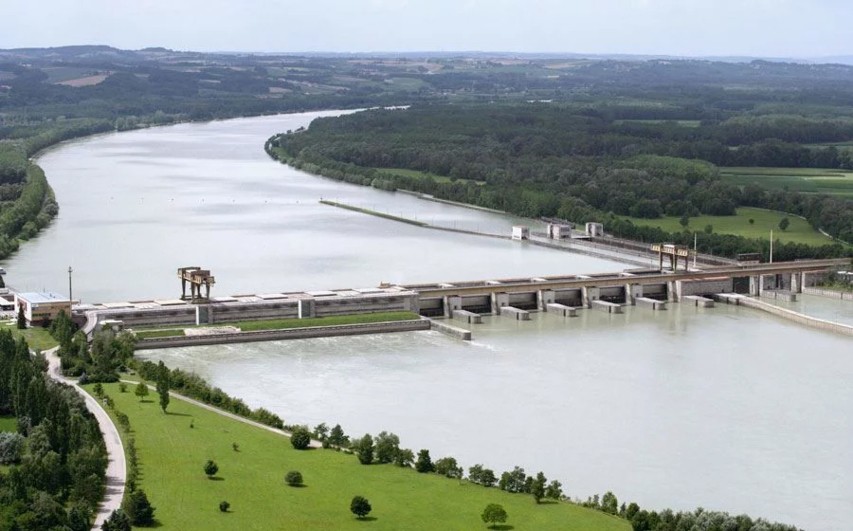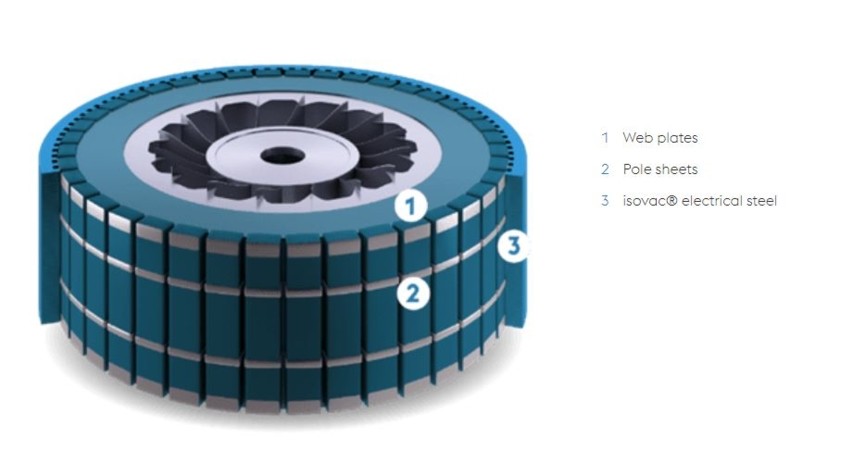
New generators for the VERBUND Wallsee-Mitterkirchen power plant
The world is in the midst of a comprehensive energy transition: electromobility in transport, heat generation in households without fossil fuels or the transformation in industry to achieve carbon neutrality require one thing above everything else: electrical energy.
The key to sustainable reduction of greenhouse gas emissions is electricity from renewable energy sources. The largest and most sustainable energy source is the sun. It can be tapped directly by photovoltaic systems or thermal solar power plants or indirectly by generating electricity from water or wind. Such advantages would not exist without the sun.
The topographical location of Austria with its many rivers and high mountains provides the best conditions to cover a high percentage of its electrical demand from hydropower plants. But the expansion of hydropower is not limited to the construction of new power plants. By modernizing and renewing existing generation facilities, their efficiency and energy production can be increased and secure supply guaranteed for several decades.
This is where three traditional Austrian companies can be brought into play: VERBUND as the leading energy company in Austria and one of the largest producers of hydropower in Europe, ANDRITZ as a manufacturer of highly efficient equipment such as turbines and generators for hydropower plants, and voestalpine Stahl GmbH as a producer of high-quality electrical steel and pole plates that are stamped and stacked to form generator cores. Voestalpine and ANDRITZ have enjoyed a long-standing partnership and operate in close proximity to each other. They also share a strong desire to innovate. Powerful generators are required to convert the potential energy in water into electricity. Powered by turbines, generators—often with extremely large dimensions—supply electrical energy to our power grid.


A current example is the modernization of the VERBUND Wallsee-Mitterkirchen power plant on the Danube: Built between 1965 and 1968 on the border between Upper and Lower Austria, the power plant has an impressive output of 210 MW. The six generators produce more than 1300 GWh per year and supply roughly 380,000 households with electricity.(1) Despite being designed for decades of operation, even the best technology requires regular maintenance and upkeep. The successive renovation of all six generators by 2025 is expected to achieve an efficiency gain of 12 million kilowatt hours. This means electrical supply to an additional 3500 households.(1)
The dimensions are amazing. The moving part of the generator alone, the rotor, has a mass of more than 200 tons and a diameter of 11 meters. ANDRITZ is responsible, among other things, for the renewal of the stators in the main generators and revision of the rotors and ancillary synchronous generators. Electrical steel strip is supplied by voestalpine in the form of isovac®, which features the best magnetic properties for stators and high-quality pole and rim sheets for rotors. The specific electrical steel used is decisive for the efficiency and performance of the generator. The higher the quality of the electrical strip, the lower will be the so-called core losses that reduce the yield in power generation. Higher-quality electrical steel leads to more electric current, and this translates into a lot of extra generated power when you have a runtime of several decades.

Rim and pole sheet requirements are primarily concerned mechanical properties. The sheets in the huge rotors must be able to cope with the mechanical loads during operation and still meet minimum magnetic requirements. Highest-quality generators equipped with the best steel strips in projects such as the general revamp of the Wallsee-Mitterkirchen VERBUND Danube power plant generate additional electrical energy without changing the landscape. The project is being completed by two traditional Austrian companies for a sustainable green future.
(1) Source: Verbund AG

